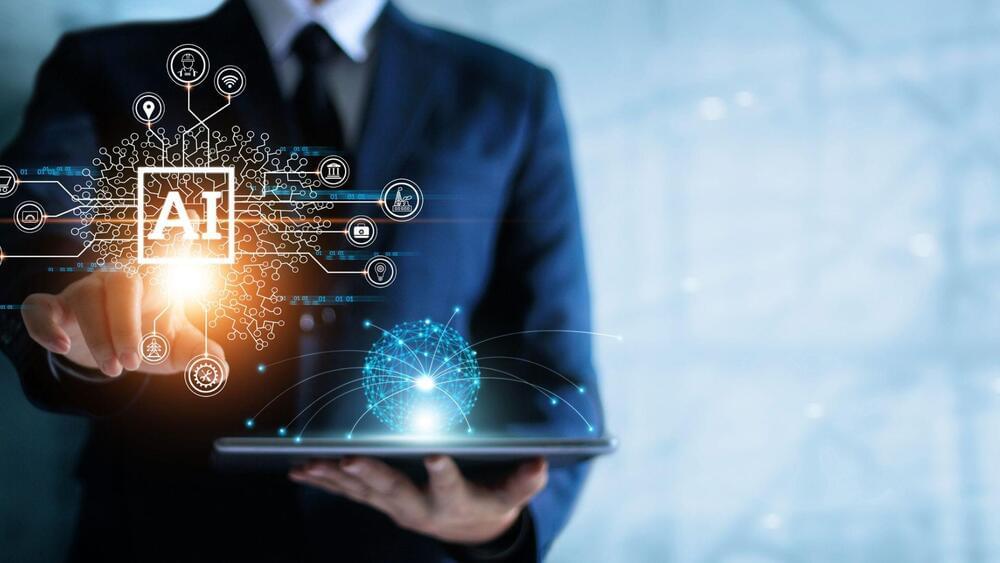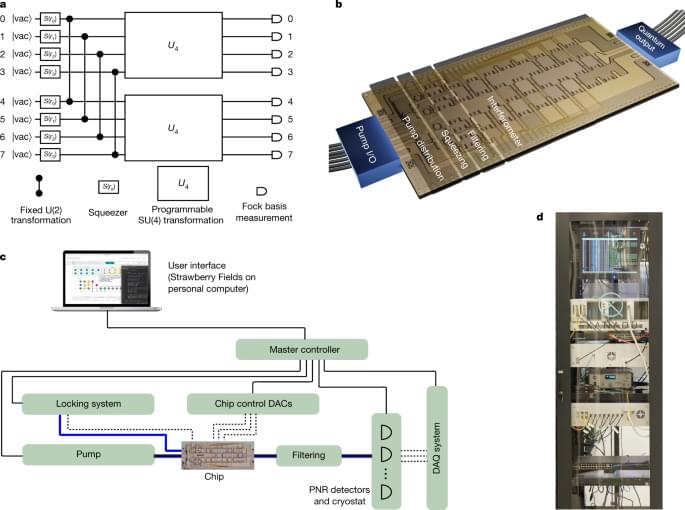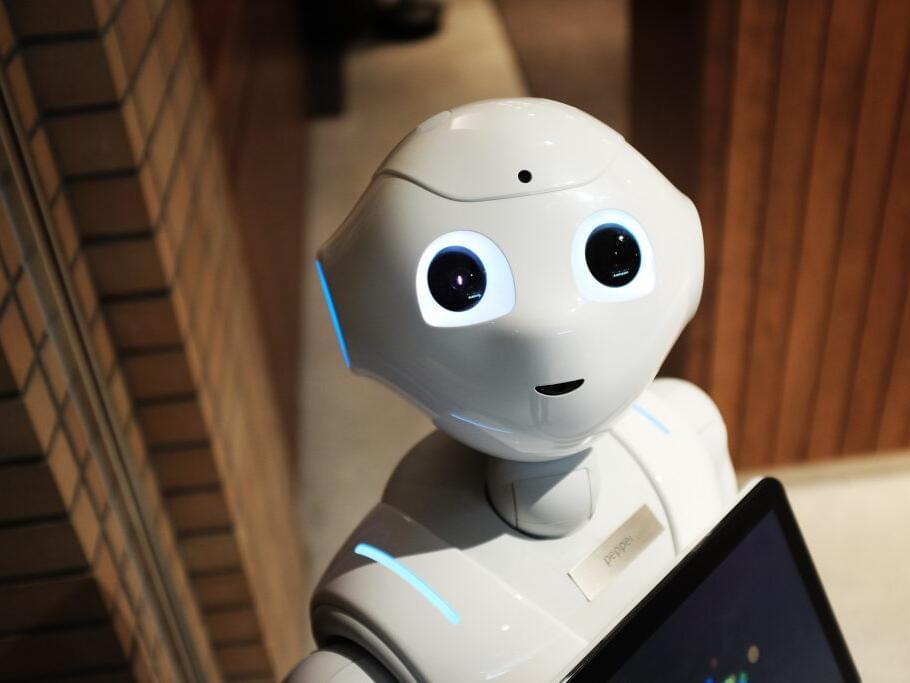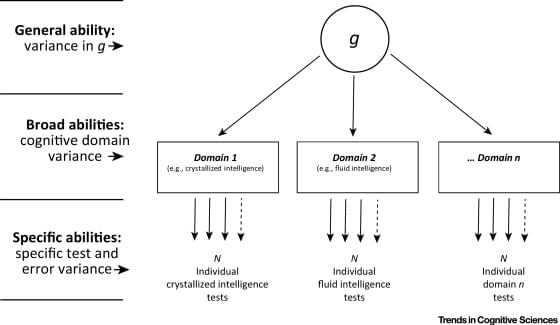Artificial intelligence can ace medical exams and assess patient symptoms, but it doesn’t care whether you life or die.


Michael Levin’s 2019 paper “The Computational Boundary of a Self” is discussed. The main topics of conversation include Scale-Free Cognition, Surprise & Stress, and the Morphogenetic Field. Michael Levin is a scientist at Tufts University; his lab studies anatomical and behavioral decision-making at multiple scales of biological, artificial, and hybrid systems. He works at the intersection of developmental biology, artificial life, bioengineering, synthetic morphology, and cognitive science.
🚩The Computational Boundary of a Self: Developmental Bioelectricity Drives Multicellularity and Scale-Free Cognition (can read in browser or download as pdf)
https://www.frontiersin.org/articles/10.3389/fpsyg.2019.02688/full.
❶ Scale-Free Cognition.
3:05 Ultimate question of the embodied mind.
5:50 The most difficult interview to prepare for.
6:55 One of my favorite papers of all time (screenshare)
7:40 The Computational Boundary of a Self.
9:25 Defining intelligence (cybernetics)
10:30 Cognitive light cones.
16:50 All intelligence is collective intelligence.
17:35 Nested selves vs. one integrated self (Not Integrated Information Theory)
21:10 The same dynamics in the brain occur in every tissue of the body.
22:50 Why scale “free” cognition?
❷ Stress & Surprise.
27:22 Stress = Surprise?
30:30 Intelligence within a salamander example (homeostatic capability of collective intelligence)
33:35 The scale-free importance of stress.
37:30 Stress is an exported error signal.
40:45 Stress means your problem becomes everyone’s problem (cooperation without altruism)
42:25 Stress has no ownership metadata (gap junctions permit mind meld)
❸ The Morphogenetic Field.
49:00 About 99% of the Shannon information in a cell is in the membrane and transmembrane gradient (Bob Gatenby)
52:25 Shannon information doesn’t distinguish meaning… 55:53 Cancer cells have the wrong scope of “self” 1:01:17 Manipulating cells via retraining vs micromanaging 1:04:45 “Drugs and words have the same mechanisms of action”-Fabrizio Benedetti 1:07:10 Morphogenetic field of signals coordinating cell behavior, bioelectricity special layer (screenshare) 1:11:13 Harold Saxton Burr predicted this 100 years ago! 1:14:50 Connections to Zen Buddhism 1:18:18 Find more of Levin’s work 🚩Links to Levin 🚩 https://youtube.com/watch?v=YnObwxJZpZc&feature=share https://twitter.com/drmichaellevin https://www.drmichaellevin.org/ https://as.tufts.edu/biology/levin-lab Technological Approach to Mind Everywhere: An Experimentally-Grounded Framework for Understanding Diverse Bodies and Minds (2022) https://www.frontiersin.org/articles/.… Buddhism, and AI: Care as the Driver of Intelligence (2022) https://www.mdpi.com/1099-4300/24/5/710 Emergence of informative higher scales in biological systems: a computational toolkit for optimal prediction and control (2020) https://www.tandfonline.com/doi/full/.… 🚾 Works Cited Jeremy Quay (visual artist) at https://peregrinecr.com/ https://en.wikipedia.org/wiki/William… https://en.wikipedia.org/wiki/Harold_… There’s Plenty of Room Right Here: Biological Systems as Evolved, Overloaded, Multi-Scale Machines (Bongard & Levin 2023) https://www.mdpi.com/2313-7673/8/1/110 Bob Gatenby talk on “Information Dynamics in Living Systems” • Bob Gatenby talk…
🚨 Note.

Many current computational models that aim to simulate cortical and hippocampal modules of the brain depend on artificial neural networks. However, such classical or even deep neural networks are very slow, sometimes taking thousands of trials to obtain the final response with a considerable amount of error. The need for a large number of trials at learning and the inaccurate output responses are due to the complexity of the input cue and the biological processes being simulated. This article proposes a computational model for an intact and a lesioned cortico-hippocampal system using quantum-inspired neural networks. This cortico-hippocampal computational quantum-inspired (CHCQI) model simulates cortical and hippocampal modules by using adaptively updated neural networks entangled with quantum circuits. The proposed model is used to simulate various classical conditioning tasks related to biological processes. The output of the simulated tasks yielded the desired responses quickly and efficiently compared with other computational models, including the recently published Green model.
Several researchers have proposed models that combine artificial neural networks (ANNs) or quantum neural networks (QNNs) with various other ingredients. For example, Haykin (1999) and Bishop (1995) developed multilevel activation function QNNs using the quantum linear superposition feature (Bonnell and Papini, 1997).
The prime factorization algorithm of Shor was used to illustrate the basic workings of QNNs (Shor, 1994). Shor’s algorithm uses quantum computations by quantum gates to provide the potential power for quantum computers (Bocharov et al., 2017; Dridi and Alghassi, 2017; Demirci et al., 2018; Jiang et al., 2018). Meanwhile, the work of Kak (1995) focused on the relationship between quantum mechanics principles and ANNs. Kak introduced the first quantum network based on the principles of neural networks, combining quantum computation with convolutional neural networks to produce quantum neural computation (Kak, 1995; Zhou, 2010). Since then, a myriad of QNN models have been proposed, such as those of Zhou (2010) and Schuld et al. (2014).
OpenAI’s breakthrough consistency model will lead into image understanding to make GPT4 multimodal, providing next generation improvements with human-computer interaction, human-robot interaction, and even helping the disabled. Microsoft has already released a predecessor to GPT4 image understanding by with Visual ChatGPT, which is much more limited in its abilities.
Deep Learning AI Specialization: https://imp.i384100.net/GET-STARTED
AI Marketplace: https://taimine.com/
AI news timestamps:
0:00 Multimodal artificial intelligence.
0:35 OpenAI consistency models.
1:35 GPT4 and computers.
3:04 GPT4 and robotics.
4:28 GPT4 and the disabled.
5:36 Microsoft Visual ChatGPT
#ai #future #tech

The agency will look at developing a standard policy for setting privacy rules on artificial intelligence.
AI-enabled language models are becoming commonplace of late, spearheaded by the disruption caused by OpenAI’s ChatGPT. In its wake, we have seen other technological players like Google and Microsoft scrambling to catch up to the competition by introducing their respective models to the public.
As a counterbalance, global authorities are doing due diligence to evolve a common framework to regulate the industry.
Ipopba/iStock.

This has important implications for measuring the mass of the central black hole in M87.
Look at the image on the left and then the image on the right. They are by no means identical. But what if we told you that both the images are of the same object?
The object being a supermassive black hole.
NoirLab.

University of Oxford professor explains how conscious machines are possible.
Up next, The intelligence explosion: Nick Bostrom on the future of AI ► https://youtu.be/1WcpN4ds0iY
In his book “A Brief History of AI,” Michael Wooldridge, a professor of computer science at the University of Oxford and an AI researcher, explains that AI is not about creating life, but rather about creating machines that can perform tasks requiring intelligence.
Wooldridge discusses the two approaches to AI: symbolic AI and machine learning. Symbolic AI involves coding human knowledge into machines, while machine learning allows machines to learn from examples to perform specific tasks. Progress in AI stalled in the 1970s due to a lack of data and computational power, but recent advancements in technology have led to significant progress. AI can perform narrow tasks better than humans, but the grand dream of AI is achieving artificial general intelligence (AGI), which means creating machines with the same intellectual capabilities as humans. One challenge for AI is giving machines social skills, such as cooperation, coordination, and negotiation.
The path to conscious machines is slow and complex, and the mystery of human consciousness and self-awareness remains unsolved. The limits of computing are only bounded by imagination.
0:00 The Hollywood dream of AI: consciousness.

Grocery shopping will lead the way in the AI (artificial intelligence) revolution.
Brits aged 15 to 64 spend about 43 percent of all their work and study time on cooking cleaning and other jobs round the home such as looking after children or elderly relatives.
In the UK, working-age men spend around half as much time as working-age women do on them.

It was therefore shortly after the discovery of g that Spearman’s contemporary, Godfrey Thomson, proposed that the general factor represents a global network phenomenon 11, 12, 13. Thomson held that g emerges from the interaction among the many elements of the brain, which he referred to as neural arcs or bonds 14, 15. According to Thomson’s Sampling Theory of Mental Ability, each item on an achievement test samples a number of these bonds 11, 12, 13. He proposed that the degree of overlap among bonds accounted for the correlation between tests and the resulting positive manifold. Thus, Thomson’s theory was the first to show that Spearman’s discovery of the general factor of intelligence is consistent with a network perspective.
Thomson’s legacy can be found in modern psychological theories which posit that g originates from the mutual interactions among cognitive processes [16]. Individual differences in g are known to be influenced, for example, by language abilities 10, 17, which facilitate a wealth of cognitive, social, and affective processes through mutual interactions (i.e., reciprocal causation) [18]. The central idea of the Mutualism Model is that change or growth in one aspect of mental ability is (i) partially autonomous (owing to developmental maturation), and is also (ii) based on growth in other areas (owing to the mutual interaction between cognitive processes). By accounting for both the autonomous and interactive nature of cognitive processes, this model is able to explain individual differences in the general factor of intelligence – accounting for the positive manifold and the hierarchical pattern of correlations among tests [16].
Advances in network neuroscience have further sharpened Thomson’s notion of neural bonds, revealing principles of brain organization that support (i) the modularity of cognitive processes (enabling the autonomy of mental processes), and (ii) the dynamic reorganization of this modular architecture in the service of system-wide flexibility and adaptation (enabling mutual interactions between cognitive processes). The following sections review these principles of brain organization and introduce a Network Neuroscience Theory for understanding individual differences in the general factor of intelligence based on the small-world topology and network dynamics of the human brain. This framework relies upon formal concepts from network neuroscience and their application to understanding the neurobiological foundations of g.